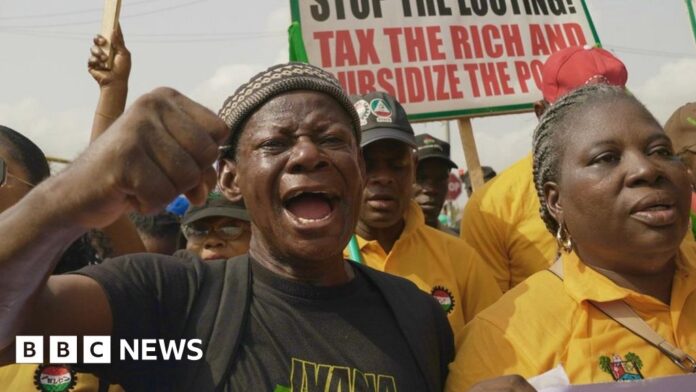Africa’s largest economy has been hit hard by a combination of factors including falling oil prices, high inflation, and a weakened currency.The country’s GDP contracted by 3.6% in 2020, the worst decline in over 30 years. Unemployment has surged to 33%, and poverty levels are at an all-time high.
The COVID-19 pandemic has only worsened the situation, with lockdown measures leading to a significant drop in economic activity. The government’s response to the crisis has been criticized for being slow and ineffective, further exacerbating the economic woes.
In recent months, there have been widespread protests against police brutality and bad governance, highlighting the frustrations of many Nigerians over the state of the economy. The government’s handling of the protests has also drawn criticism from the international community, further damaging Nigeria’s reputation and investor confidence.
Despite these challenges, there is hope that Nigeria can turn its economy around with the right policies and reforms. The government will need to address issues such as corruption, inefficient bureaucracy, and lack of infrastructure to attract investment and stimulate growth.
As Nigeria grapples with its economic crisis, it is clear that decisive action is needed to prevent the situation from deteriorating further. The future of Africa’s largest economy will depend on how effectively the government can implement much-needed reforms to stabilize the economy and improve the lives of its citizens.

